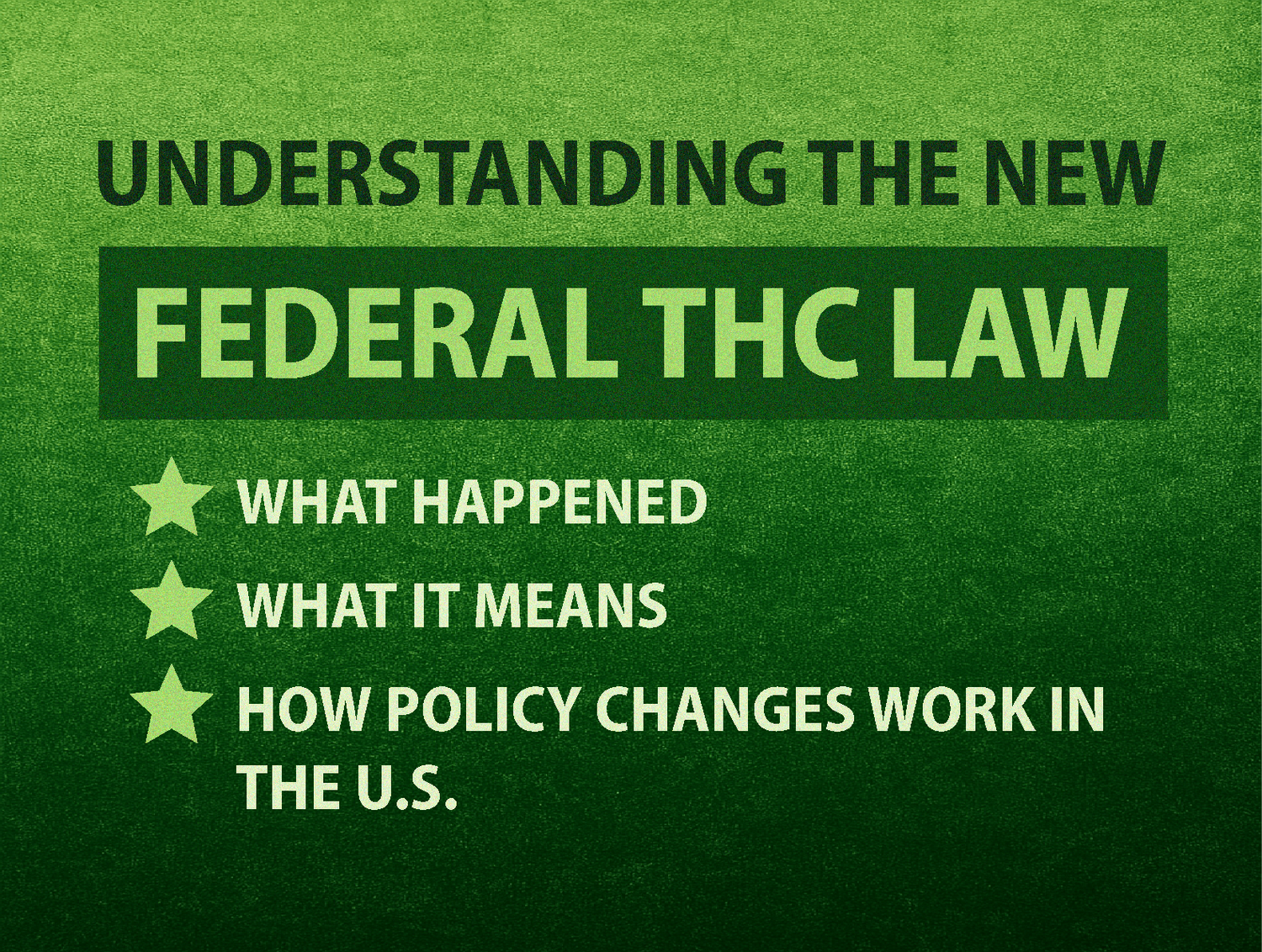Understanding the New Federal THC Law: What Happened, What It Means, and How Policy Changes Work in the U.S. ⭐
In late 2025, the United States enacted a new federal law that significantly changes how hemp-derived THC products are regulated nationwide. These updates affect businesses across the hemp, cannabinoid, agricultural, and seed-related industries. While implementation is still evolving, several changes are already clear.
Below is a factual, up-to-date overview of how the law was passed, what the new rules mean, and how policy changes can occur in the United States through established civic processes.
This information is for educational purposes only and is not legal advice.
How the New THC Law Was Enacted 🏛️
-
Congress passed the legislation
The new THC limits and hemp definitions were included inside a larger federal funding package. Both the House and Senate approved it. -
The bill introduced a new federal limit and definition
Lawmakers aimed to address intoxicating hemp-derived cannabinoids that expanded after the 2018 Farm Bill. -
The President signed the bill into law
Once signed, the legislation became official and triggered a national transition period. -
Federal agencies will now determine enforcement details
USDA, FDA, and DEA are responsible for issuing guidance. These agencies are still preparing implementation timelines and definitions.
What the New Law Actually Does 📜
1. New total THC limit per package
Hemp-derived consumable products must now contain no more than 0.4 milligrams of total THC per package.
This includes delta-9 THC, THCA, and related isomers or derivatives.
2. Narrower federal definition of hemp
The law closes the loophole that allowed intoxicating hemp products, such as Delta-8 and high-THCA consumables, to be sold under the prior definition.
3. A national one-year transition period
Businesses have approximately one year to adjust before full enforcement begins.
4. Federal preemption of conflicting state laws
If a state allows higher-THC hemp products, federal law now overrides those allowances. States must operate within the new federal threshold.
5. USDA enforcement timing update
The USDA has delayed enforcement of certain hemp-testing requirements until December 31, 2025, meaning some compliance steps will phase in gradually.
6. Pending FDA guidance
The FDA is preparing updated guidance on hemp-derived cannabinoids, food safety, labeling, and adverse event reporting. Implementation details may change as these documents are released.
What the Law Does Not Affect 🌱
The law does not apply to:
-
State-legal recreational cannabis programs
-
State medical cannabis programs
-
Agricultural tools or equipment
-
Hemp fiber, textiles, plastics, or other non-consumable uses
However, the broader marketplace around growers, breeders, extractors, and seed companies may respond to changing trade conditions and consumer demand.
Why the Market May Still Experience Disruption 📉📈
Even though only specific product categories are directly regulated, the law is expected to influence the larger ecosystem in several ways:
-
Adjustments to product lines
-
New labeling and testing requirements
-
Changes in state licensing systems
-
Reduced availability of certain consumables
-
Shifts in consumer behavior
-
Increasing regulatory oversight and legal uncertainty
Growers, seed companies, and agricultural suppliers may experience indirect effects as retailers, processors, and manufacturers adjust.
How Policy Can Change in the United States: Civic Processes and Public Participation 🇺🇸
In the U.S., federal laws can be revisited or modified over time. Below is a neutral and factual overview of established civic mechanisms that contribute to policy change.
⭐ 1. Elections
Congress writes and passes federal law.
During elections, voters choose the Representatives and Senators who will review, amend, or introduce new legislation. Changes to federal hemp or THC policy typically occur when:
-
New lawmakers take office
-
Congressional priorities shift
-
Committee leadership changes
-
Public interest increases
This is the most direct mechanism through which policy direction can change.
⭐ 2. Contacting Lawmakers
Members of the public often engage with elected officials through:
-
Phone calls
-
Emails
-
Town halls
-
Community meetings
-
Organized petitions
Lawmakers frequently consider constituent input when evaluating issues, especially when they receive feedback from many people or directly impacted businesses.
⭐ 3. Supporting Legal Challenges (Indirectly)
Individuals may support organizations that:
-
File lawsuits
-
Seek injunctions
-
Challenge regulatory interpretations
-
Provide legal resources to affected groups
Courts can clarify or limit the scope of a law, although courts rarely overturn entire federal statutes.
⭐ 4. State-Level Actions
States cannot override federal law, but they can:
-
Pass resolutions
-
Request clarification
-
Participate in legal actions
-
Establish transitional rules
-
Provide feedback to USDA, FDA, and DEA
States often influence how federal laws are interpreted and applied, especially during rollouts.
⭐ 5. Actions That Typically Do Not Change Federal Law
Some activities may raise awareness but do not directly modify legislation:
-
Protests
-
Boycotts
-
Social media discussions
-
Hoping agencies decline enforcement
-
Relying solely on court decisions
These actions do not create binding changes in federal law.
⭐ 6. How Policy Usually Evolves
Federal policy typically shifts through a combination of:
-
Elections
-
Public input
-
Industry and agricultural feedback
-
Congressional review or amendments
-
Budget decisions that affect enforcement funding
-
Court rulings that refine specific sections
-
Regulatory updates from USDA, FDA, or DEA
These pathways shape how laws develop over time.
Final Thoughts 🌟
The new federal THC law represents one of the most significant shifts in hemp regulation since the 2018 Farm Bill. While both the federal and state regulatory environments are still adapting, growers, seed companies, processors, and agricultural suppliers will likely experience changes throughout the transition period.
CannaKAN® will continue offering consistent and scientifically aligned germination tools that support growers and researchers during times of regulatory change.



0 comments